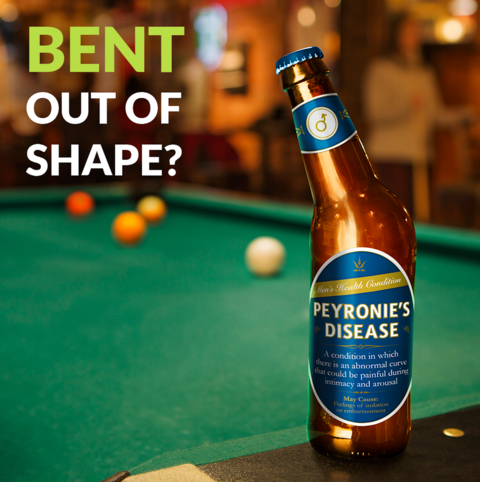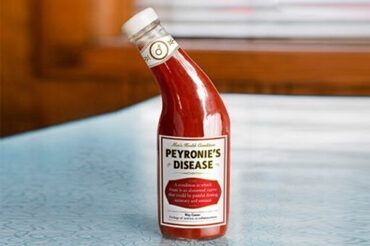Peyronie’s Disease
Peyronie’s Disease
Peyronie’s Disease (PD) - occurs when scar tissue (plaque) develops under the skin surface of the penis, causing it to curve or bend during erections. The plaque may be the result of genetics, trauma, penile injections, or may have an unknown cause. Many who have PD experience pain, with or without an erection. Subsequently, they may develop erectile dysfunction (difficulty getting or maintaining an erection) as their body’s way of defending itself against potential pain.

What is Peyronie’s Disease?
5-10% of men across the globe are suffering from Peyronie's Disease (PD), and current treatments such as chemicals and surgery have not been successful. PD is a painful condition that occurs when plaque, or segments of flat scar tissue, forms underneath the surface of the penis or directly around the tunica albuginea, causing it to bend or become indented during erections.
PD can cause significant pain, sexual dysfunction, and anxiety in men of any age. Minor injury to the penis and plaque build-up are believed to be the main contributors to PD, along with genetic factors. Damage is commonly caused by vigorous sex, such as bending the penis during penetration or pressure form the pubic bone, though it can also be caused by injury during sports or other rigorous activities.

Symptoms and Causes of Peyronie’s Disease
Peyronie’s disease symptoms range in severity, but have been known to worsen over time or appear rapidly. Scar tissue buildup in the tunica albuginea, or the tough fibrous layer surrounding the urethra and corpora cavernosa, causes rigidity and inflexibility of the penis. This can be caused by injury, poor diet, disease, or genetics. The most frequently reported symptoms include:
- Bent or curved penis
- Difficulty getting or maintaining an erection
- Pain with or without an erection
- Lumps under the skin
- Penile shortening
If left unattended, PD can lead to permanent nerve damage in the genital area, as well as possible damage to the urethra. This causes difficulty urinating and even trouble achieving orgasm later in life. It is important to begin exploring options for treatment early, as options are limited until now.

Peyronie’s Disease Treatment
Besides a bent or curved penis, erectile dysfunction, and pain, symptoms may include lumps under the skin from a buildup of plaque and a shortening of the penis. The severity of symptoms will vary. They may appear rapidly and worsen over time.
The good news is that PulseWave therapy, a breakthrough treatment for Peyronie’s Disease and erectile dysfunction is now available. This therapy consists of pulsed, acoustic waves which break down deposits of plaque and provide significant relief from PD symptoms. Before PulseWave, treatment options were limited. It is by far the safest form of PD treatment because of its noninvasive nature and lack of chemicals. By eliminating scar tissue and plaque build up, PulseWave also helps with erectile dysfunction as well, so that men may enjoy a healthy sex life once again.
Schedule an Appointment
Acoustic wave therapy is a godsend treatment for Peyronie’s disease due to the fact that it prevents the need for more invasive alternatives, such as painful surgery. At Juvenate we take pride in offering an all-natural Peyronie’s disease treatment that is surgery and needle-free.
Get in touch to get started!
